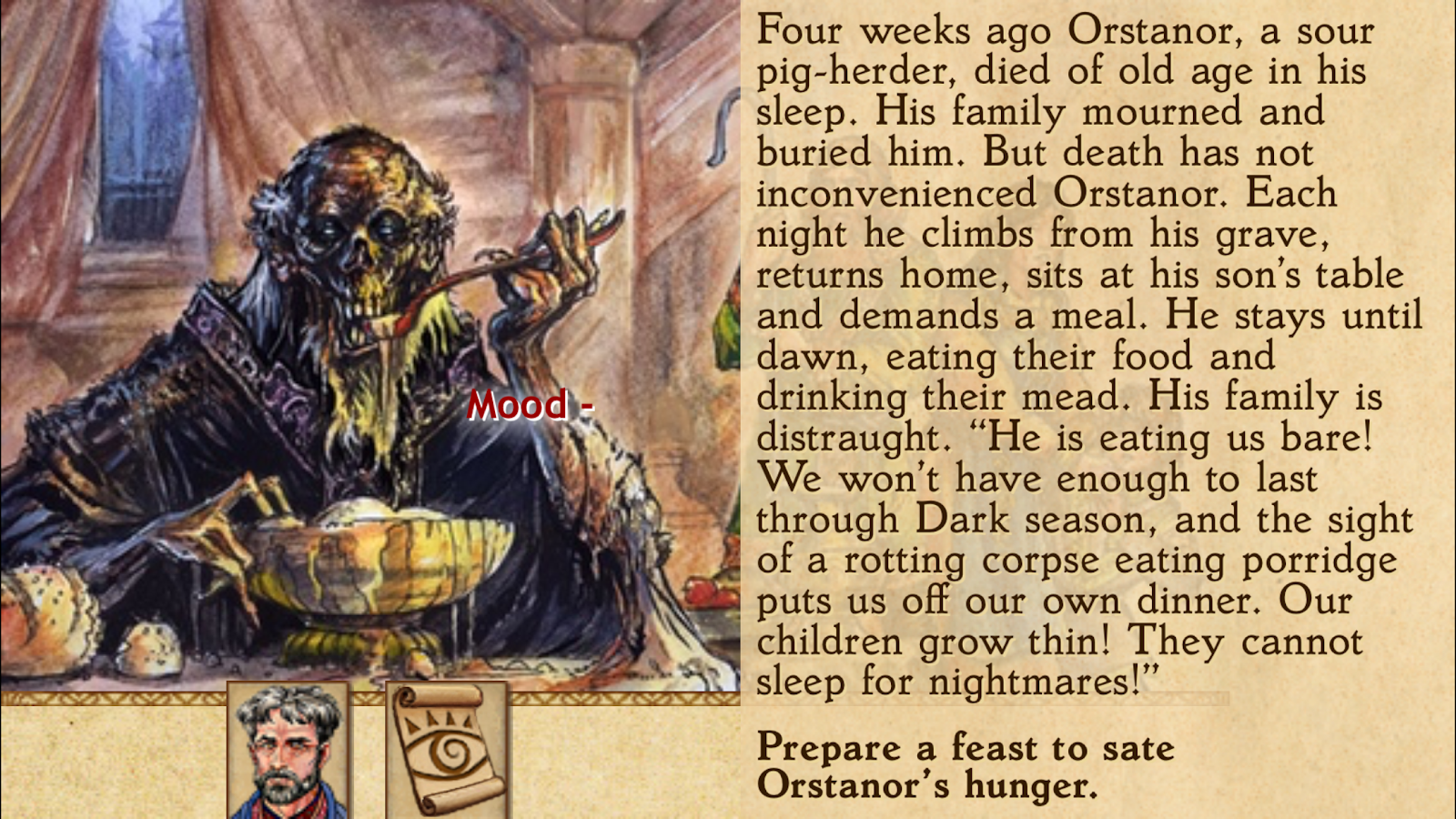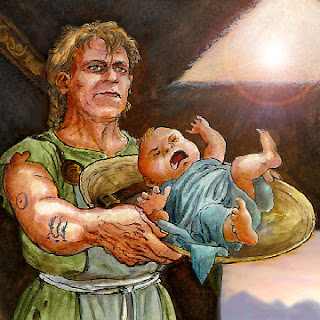Last Friday I got the sad
news that Greg Stafford had passed on.
My first reaction was that I’d never be able to talk to my friend again. I think that really speaks to who Greg was — not just a wildly creative person who I collaborated with on
King of Dragon Pass, and who taught me so much.
My first indirect interaction with Greg was in 1976 or 1977 when I bought his board game W
hite Bear & Red Moon and sent in the registration card. He sent a copy of his mimeographed zine,
Wyrms Footnotes.
A few years later, I sent him a cult writeup for
RuneQuest. As I recall, it was more concerned with game effects than mythology, which he gently pointed out in a reply.
I probably met him in person after that, at a game convention. I don’t remember the specifics, but I know that he was a designer who I could like in person, not just for his works. (Unfortunately, this wasn’t true for every game designer.)
A later convention memory is playing a game of
Pendragon which he was running, remembering one of the rules better than he (the author) did. That was a lesson in how the story is the important thing.
We had a fairly extensive correspondence, back in the days of mailing letters. This was usually related to Glorantha or his games. I suspect it was mostly me asking questions. It often ended up with Greg sending something he’d written.
When Greg wrote
King of Sartar, he sent me parts of it for feedback. I think this is when I conceived the idea of combining his world of Glorantha with a multi-generational game, like
Pendragon. The next time I was in northern California, he let me visit the Chaosium offices and make xerox copies of any of his relevant notes.
Our correspondence and convention meetings started to discuss making this into a computer game. As we got more serious, I flew down to meet him. He picked me up at the airport, having rented a car so that he could.

We agreed on terms for the contract, which were very reasonable from my point of view. One of the most important issues was the freedom I had to make the game. I was worried about being second-guessed for getting Glorantha wrong, but Greg was totally willing to trust me with his creation.
As for the actual contract, Greg didn’t like how legalese my lawyer’s draft was, and rewrote much of it to be more clear.

During the game’s development, we had a weekly call. Greg usually had way more ideas than I could use, but always just put them out as possibilities.
The one point of approval we’d agreed on was art. We faxed illustrations for several weeks, until Greg finally told me that he no longer needed to approve them. Once again he was giving me a lot of trust, at a time when my game was going to be one of the only Glorantha products in print.

We both tried to pitch it to publishers. We went to a Computer Game Developers Conference. On the way over, Greg expressed his doubts about the quality of the coffee that would be available, so I had to drive around to find a Starbuck’s for him.
Other convention memories include how he always preferred t-shirts with a pocket, and how at one Tentacles, he shared a bottle of excellent mezcal someone had given him.
 |
| Greg (left) and me (center) at Tentacles 1999 |
When Greg started a new company to publish Glorantha, Greg asked me to be part of it. I tried to help him as best I could. I’m not really sure I discharged my duties all that well, though I did what I could to resolve an unpleasant dispute. At one point the company needed a loan, which I was happy to give to a friend. Greg made sure to repay it when he could.
As for running a business, I know he was always honest. He once told me that if you had to cheat on your taxes, you didn’t deserve to be running a company.
Although most of what I’ve written is about playing and making games with Greg, he was also someone I could confide in about family problems, or share a good meal with. And one visit, we were on the way somewhere and he ended up hanging out with a kid who’d gotten hurt, until the emergency responders had showed up and Greg was sure the kid was in good hands.
I haven’t been able to get to many conventions lately, and Greg had retired. He was still willing to give me some ideas for
Six Ages.
Thank you Greg for all you’ve given me over the years. I literally wouldn’t have had any kind of game development career without you. Or have branched out my interests into mythology and anthropology without you having made games informed by them. And maybe wouldn’t have had a tlayuda or mezcal. Best wishes on your final trip to the Other Side.












